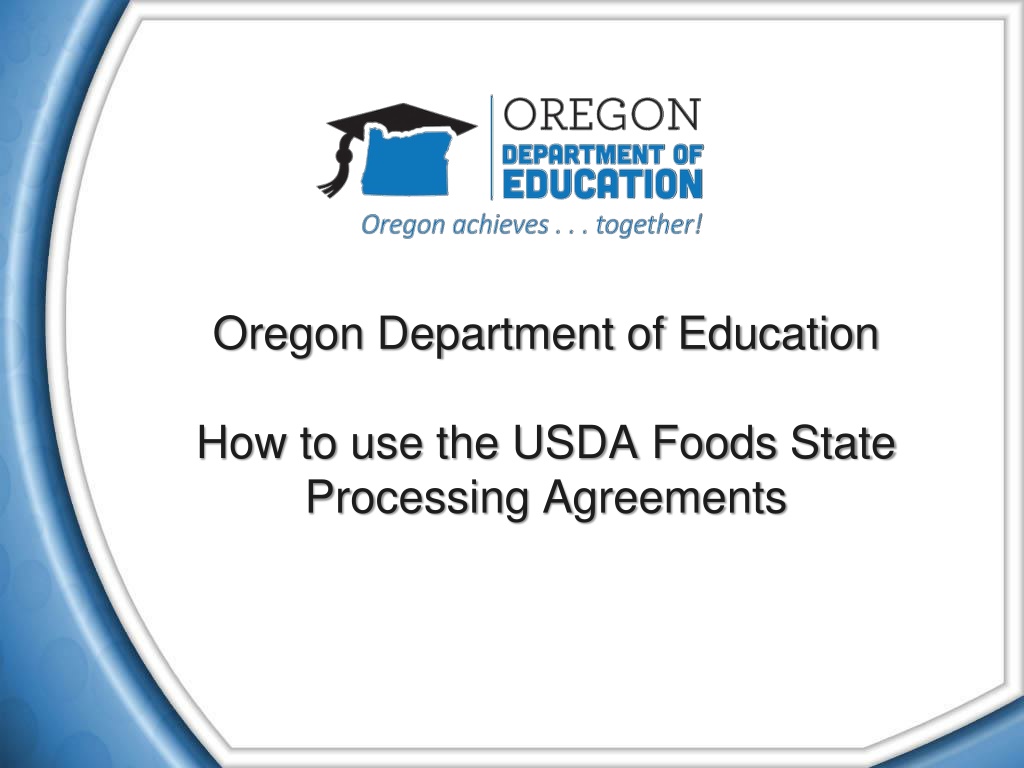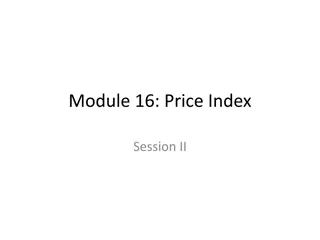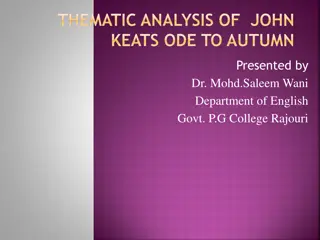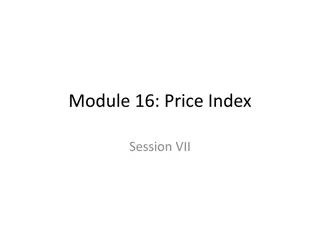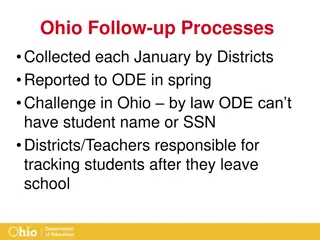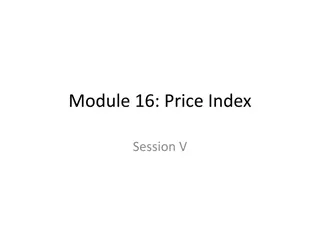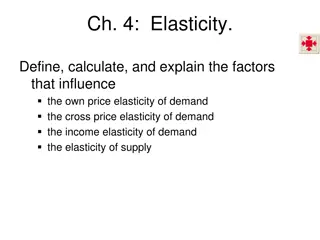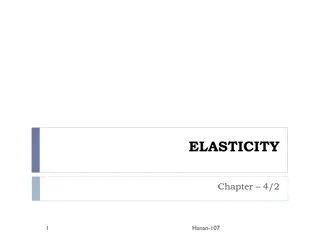Understanding USDA Foods State Processing Agreements in Oregon
The Oregon Department of Education works with state distributing agencies and school districts to leverage USDA Foods and convert them into convenient end products through processing agreements. Various levels of government can make regulations regarding nonprofit food service accounts, ensuring compliance with federal requirements. State agreements involve negotiating prices, selecting processors, and finalizing agreements. Schools in Oregon have access to competitively procured USDA Foods processed products, with sponsors responsible for arranging orders and delivery.
- Oregon Department of Education
- USDA Foods
- State Processing Agreements
- School Nutrition Programs
- Federal Regulations
Download Presentation

Please find below an Image/Link to download the presentation.
The content on the website is provided AS IS for your information and personal use only. It may not be sold, licensed, or shared on other websites without obtaining consent from the author. Download presentation by click this link. If you encounter any issues during the download, it is possible that the publisher has removed the file from their server.
E N D
Presentation Transcript
Oregon Department of Education How to use the USDA Foods State Processing Agreements
USDA Foods USDA allows State Distributing Agencies and school districts to contract with commercial food processors to convert raw and/or bulk USDA Foods into a variety of convenient, ready-to-use end products.
Who Makes the Rules? Each level of government, from school boards to the U.S. Congress, can make regulations and policies about the use of nonprofit food service accounts, as long as the procurement process and contracting requirements are not less restrictive than the Federal regulatory requirements. Referencing these regulations and policies, the School Food Authority must develop their own documented operating procedures and processes of how they are meeting the minimum requirement for their non-profit food service account in accordance with 2 CFR 200 when using federal funds. Oregon Revised Statutes 279A.030 states, applicable federal statutes and regulations govern when federal funds are involved and the federal statutes or regulations conflict with any provision . Oregon Administrative Rule 581-051-0100 states Authority and direction for the operation of school nutrition programs in Oregon shall be derived from the United States Department of Agriculture, the Oregon Revised Statutes, Oregon Administrative Rules and rules of district school boards All the Child Nutrition funds you receive are considered federal funds The program applies the principle of federalism which allows the most restrictive federal, state or local statute, rule or policy to apply in the management of program operation and finances. The Federal regulations set the minimum standard that the School Food Authorities must follow.
State Agreement Under a State agreement, the State Distributing Agency(ODE) negotiates prices, selects the processor and the end products which will be produced, and enters into an agreement with the processor.
Oregon Department of Education ODE conducted a Requests for Proposal for Price Agreements of USDA Foods processed end products. A committee of varying size school districts throughout Oregon participated in the tasting and scoring of products, to achieve the best product at the best price. The products and prices are available to all Oregon National School Lunch Program sponsors (must meet processor minimums). They have been competitively procured in compliance with all Federal and State Procurement regulations. Sponsors are responsible for diverting USDA Foods to these processors and arranging for orders/delivery with the processor contact if they wish to use the agreements. Processors may ship via direct delivery, through a distributor, or through the state contracted warehouse (Tools for Schools/GoodSource). Shipping terms/cost options are outlined on the products/pricing document.
How to use a Price Agreement The Processing Agreements, by themselves, are not a binding contract. The Authorized Purchaser (AP) and Contractor must enter into binding and enforceable Contract for the specific products listed in each of the PAs (ordering instrument). The ordering instrument that you issue (purchase order or contract) must contain mandatory language referencing the Processing Agreement. A contract template is located on the ODE processing agreement website. 2 CFR 200.318(b): Non-Federal entities must maintain oversight to ensure that contractors perform in accordance with the terms, conditions, and specifications of their contracts or purchase orders.
Ordering Instrument Must Specify Language stating that the ordering instrument is submitted under the Price Agreement The specific goods, services, and quantity of each item ordered The net price The requested delivery schedule The delivery location(s) The invoicing address The Authorized Sponsor s authorized representative and relevant contact information, including an email address
Language that RA can use on their POs when using Price Agreements (if not using ODE contract template) THIS PURCHASE IS SUBMITTED PURSUANT TO OREGON DEPARTMENT OF EDUCATION PRICE AGREEMENT #__________ (Ordering Organization will insert Agreement Number). THE PRICE AGREEMENT INCLUDING CONTRACT TERMS AND CONDITIONS AND SPECIAL CONTRACT TERMS AND CONDITIONS (T s & C s) CONTAINED IN THE PRICE AGREEMENT ARE HEREBY INCORPORATED BY REFERENCE AND SHALL APPLY TO THIS PURCHASE AND SHALL TAKE PRECEDENCE OVER ALL OTHER CONFLICTING T s & C s, EXPRESSED OR IMPLIED.
Purchase order example THIS PURCHASE IS SUBMITTED PURSUANT TO OREGON DEPARTMENT OF EDUCATION PRICE AGREEMENT #__________ (Ordering Organization will insert Agreement Number). THE PRICEAGREEMENT INCLUDING CONTRACT TERMS AND CONDITIONS AND SPECIAL CONTRACT TERMS AND CONDITIONS (T s & C s) CONTAINED IN THE PRICE AGREEMENT ARE HEREBY INCORPORATED BY REFERENCE AND SHALL APPLY TO THIS PURCHASE AND SHALL TAKE PRECEDENCE OVER ALL OTHER CONFLICTING T s & C s, EXPRESSED OR IMPLIED.
Resources http://www.oregon.gov/ode/students-and-family/childnutrition/USDAFoods/Pages/StatewideProcessingAgreements.aspx http://www.oregon.gov/ode/students-and-family/childnutrition/Pages/Procurement.aspx http://www.oregon.gov/ode/students-and-family/childnutrition/Documents/procurement-in-21st-century.pdf 2 CFR 200: UNIFORM ADMINISTRATIVE REQUIREMENTS, COST PRINCIPLES, AND AUDIT REQUIREMENTS FOR FEDERAL AWARDS 7 CFR 250: DONATION OF FOODS FOR USE IN THE UNITED STATES, ITS TERRITORIES AND POSSESSIONS AND AREAS UNDER ITS JURISDICTION
Oregon Department of Education Our Why Equity and Excellence for Every Learner The Oregon Department of Education works in partnership with school districts, education service districts and community partners; Together, we serve over 580,000 K-12 students; We believe every student should have access to a high-quality, well- rounded learning experience; We work to achieve the Governor s vision that every student in Oregon graduates with a plan for their future. 11
Oregon Department of Education Education Equity Stance Education equity is the equitable implementation of policy, practices, procedures, and legislation that translates into resource allocation, education rigor, and opportunities for historically and currently marginalized youth, students, and families including civil rights protected classes. This means the restructuring and dismantling of systems and institutions that create the dichotomy of beneficiaries and the oppressed and marginalized. 12
Non-Discrimination Statement In accordance with Federal civil rights law and U.S. Department of Agriculture (USDA) civil rights regulations and policies, the USDA, its Agencies, offices, and employees, and institutions participating in or administering USDA programs are prohibited from discriminating based on race, color, national origin, sex, disability, age, or reprisal or retaliation for prior civil rights activity in any program or activity conducted or funded by USDA. Persons with disabilities who require alternative means of communication for program information (e.g. Braille, large print, audiotape, American Sign Language, etc.), should contact the Agency (State or local) where they applied for benefits. Individuals who are deaf, hard of hearing or have speech disabilities may contact USDA through the Federal Relay Service at (800) 877-8339. Additionally, program information may be made available in languages other than English. To file a program complaint of discrimination, complete the USDA Program Discrimination Complaint Form, (AD-3027) found online at: USDA Link, and at any USDA office, or write a letter addressed to USDA and provide in the letter all of the information requested in the form. To request a copy of the complaint form, call (866) 632-9992. Submit your completed form or letter to USDA by: (1) mail: U.S. Department of Agriculture Office of the Assistant Secretary for Civil Rights 1400 Independence Avenue, SW Washington, D.C. 20250-9410; (2) fax: (202) 690-7442; or (3) email: program.intake@usda.gov This institution is an equal opportunity provider.
